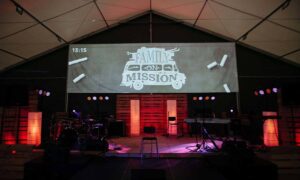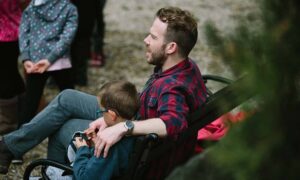May 15, 2018
Family On Mission
The Josiah Venture team was small enough to sit in a circle in my living room when I first shared a vision that was close to my heart. God had called us to believe him for a spiritual movement among the youth of Central and Eastern Europe. But I was also convinced that our own children were to be blessed by the obedience of their parents.
I grew up as part of a missionary family and had many “uncles” and “aunts” who were not related to me by blood, but by calling. Even as a child I felt I belonged to this tribe of godly people who had sacrificially joined together around a common mission.
That community shaped me in such profound ways that I wanted JV to carry this heritage to another generation. We began talking about “family on mission.” If God called parents to a mission, their children were certainly not an afterthought. Their kids would be healthier if raised in the context of a vision and call, and their influence in the schools and community could be as significant as that of their parents.

Over 20 years later, we have 108 Josiah Venture kids, children of missionaries serving in a second culture. Every day they attend national schools in a second language, in challenging contexts with few other believers. We surround them with support, teaching them how to be on mission with their family, creating special events for them, and assigning staff to build into them in disciple-making ways. Recently, we did a number of personal interviews to find out how they are doing. Here are a few things they said:
“I feel special because I am involved in ministry with my parents, not just a kid stuck here. This is super unique and really cool. It is good to know the purpose and mission of why I am here.”

“There is something about getting to work alongside my dad that is great, like we’re kind of co-laborers.”
“[Because I am part of my parents’ ministry] I learned that I am key to JV and to God’s Kingdom. I have purpose and can be a part of what God is doing…”
It is especially meaningful to me that God has already called 8 of our JV kids who are now adults back to the JV team to serve as missionaries on their own.
Now I am praying that they, too, will be family on mission.

Dave Patty, President, Josiah Venture





